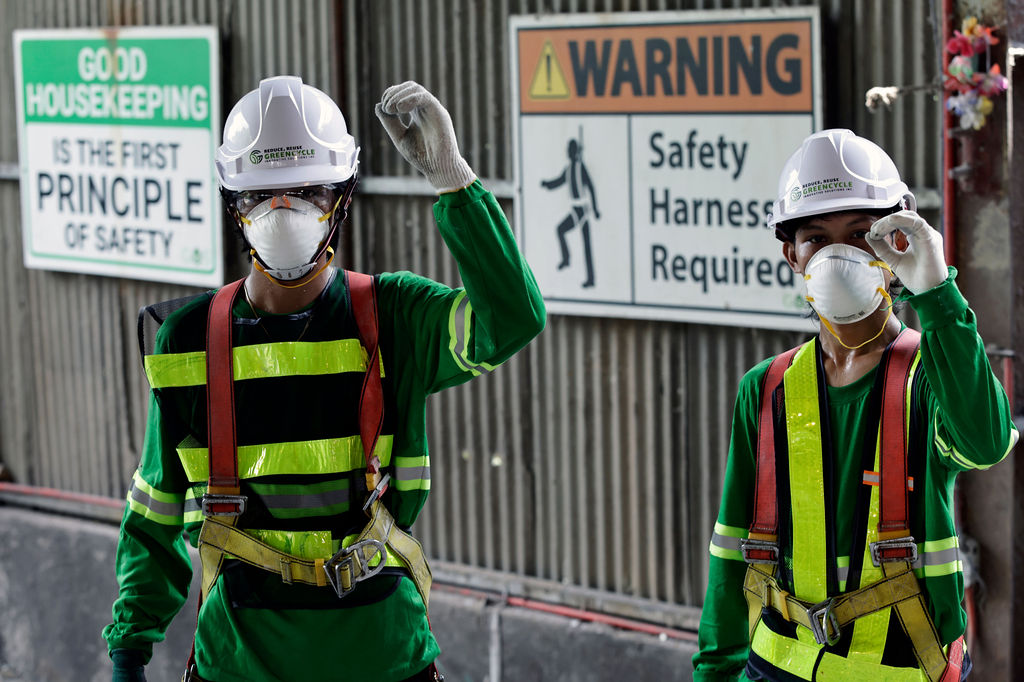Turning the Tide on Plastic Waste
Overview
In the second of a four-part blog series, Vice President of Projects, Nicholas Kolesch, discusses how incentives to clean up plastic waste can be enabled through circularity and how a project in Ghana paves the way.
Picture palm-fringed beaches and spectacular jagged shorelines stretching across a stunning 560km coastline. It is no surprise that Ghana has been one of Africa’s go-to beach destinations in recent years. But there is a growing blemish on these shores – one that is most keenly felt in its coastal capital city.
Plastic waste such as bags and bottles litters Accra’s community, covering large areas of its beaches. Water pollution resulting from illegal mining, industrial waste, and unmanaged household disposal has resulted in the sale of plastic bags of drinking water, many of which inevitably become plastic waste posing a serious environmental risk. As quickly as the tides carry the plastic waste far out into the Atlantic Oceans, waves wash up more upon the sand, in an unrelenting loop.
Plastic Pathways to Oceans
Accra’s challenge, like many cities across the globe, lies in the lack of adequate solid waste management infrastructure. With clogged sewers and waterways, flooding and disease have plagued many of these lower- to middle-income areas in Sub-Saharan Africa, South and South-East Asia. The journey of plastic waste continues with oceans and beaches its unfortunate destination.
As recently as 2017, the United Nations Environmental Program (UNEP) launched the #CleanSeas campaign to reverse the challenge of eight million tons of plastic waste entering our oceans every year. Statistics this big are abstract, but perhaps more tangible are the real actions taken by governments, businesses, NGOs and non-profit organizations closer to home; real actions like the Closing the Loop project by the ASASE Foundation in Accra.
Enduring Clean-Up, a Ground-Up Approach
The Ocean Stewardship 2030 Report released in June 2020 by the UN Global Compact (UNGC), addressed the public-private governance needed to accelerate ocean-related solutions. The report highlighted recommendations reflecting the Alliance’s four-pillar focus: Infrastructure, Innovation, Education & Engagement and Clean-Up.
With 75 percent of ocean plastic coming from land-based sources as a result of uncollected waste disposal, ocean clean-up initiatives have gained global attention. However, providing the means and incentives to ‘clean up’ is a foundational element to stopping waste leakage. Littering, poorly managed landfills, open dumps and waste burning are issues of development and economics. Any solution tested or deployed must consider differences in the make-up of each municipality: urban vs rural, population size, government policies and revenue base, and investment climate.
While there continue to be many meaningful clean-up projects, the importance of turning off the tap in the first place through the installation of waste management infrastructure is often overlooked. The Alliance believes that this is a critical point to address, as it’s the first step to realizing a sustainable, circular economy. The efforts of the Alliance are therefore built on six action areas: front-end design, access to waste collection, processing, recycling, participation & engagement and finally, end-markets.
Closing the Loop in Ghana
One group in Ghana is setting the pace as it seeks a sustainable solution to clean up the beaches. Founded in 2017, the ASASE Foundation provides a platform for women entrepreneurs in the country to create value out of litter in Accra, while cleaning up the community at the same time.
In Accra, only two percent of waste is recycled, and 78 percent of it is unmanaged.The foundation saw an opportunity in this, and in 2018, it launched the Closing the Loop initiative. Its recycling plant reprocesses plastic waste into materials such as pavement blocks, to allow for social enterprises to monetize waste for profit. In addition, ASASE provides technical and business management skills for women entrepreneurs to help them generate an income. In the first year, the project created eight jobs, and repurposed 35 tons of plastic waste.
By 2022, Closing the Loop aims to establish a circular economy for plastic waste in Accra, working towards local solutions that can go some way to supporting the eventual restoration of its white-sand beaches.
At the Alliance, we are committed to supporting these initiatives as part of our mission to end plastic waste in the environment. In May, the Alliance announced a partnership with the ASASE Foundation to support its Closing the Loop initiative, marking our first foray into Africa.
The partnership will allow ASASE to accomplish even more. For example, it will enhance the capacity of the recycling plant, allowing it to handle around 2,000 tons of plastic waste annually and in turn, create more jobs. Along with other partners, we are also exploring the possibility of bringing in more expertise in areas such as developing new end market applications and a new financing system for plastic waste management.
The Long Game
Today, many organizations have pledged to clean up our oceans and it is an urgent task that must be supported. Nevertheless, the first step to the long game of building circular economies is the prevention of waste entering the environment. To that end we are funding the acceleration of local solutions that bring value to plastic waste, incentivizing clean up, enabling circularity and ultimately avoiding leakage in the first place.
It is a long journey but a possible one if we are all working together; and in Accra, steps towards restoring beautiful beaches and improving livelihoods are underway.
Find out more about the progress we are making to end plastic waste here.
*Ocean Conversancy Report 2015: Stemming the Tide
Stay in the loop
Subscribe to our newsletter for the latest news and updates from the Alliance








.avif)